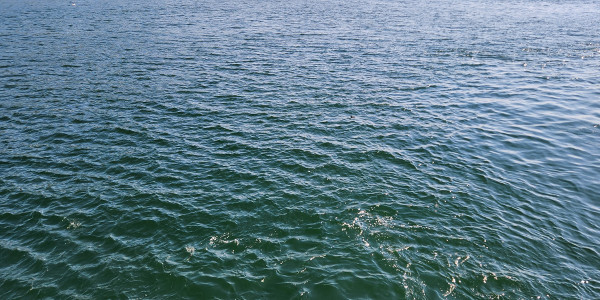Water, water everywhere
I’ve nearly drowned three times. The first time was when I was about ten. My mother took me to one of her childhood haunts, Jones Beach, on Long Island. She used to swim there in the summers when she was growing up in Brooklyn. It was warm and sunny the day I nearly drowned. As usual the beach was shoulder-to-shoulder. I shed my clothes down to my swimsuit, charged into the water, and dove heedlessly into the first wave I encountered, which turned out to be much bigger than I’d bargained for. It unceremoniously picked me up and flipped me over. I swam hard to get to the surface. Just as it seemed my breath had totally run out, my head rammed into the sandy ocean bottom–I was so disoriented I swam south instead of north. Having lost all sense of direction, I thoroughly panicked, semi-blacked out, and was miraculously delivered to shallow water by another wave. From there I was able to crawl up on the sand and catch my breath. I don’t think I swam any more that day.
Many years later I was living in Thailand with my then-wife, Phyllis. For a little break from work, we drove to Phang-nga Bay, in the southern part of the country. The scenery, which was later featured in the James Bond film, The Man with the Golden Gun, was spectacular. From there we drove across the peninsula to a beach on the east coast, facing the Gulf of Siam. It was straight out of a travel poster: the ocean was glistening blue with regular foamy waves, and the wide, pristine beach was fringed with billowing palm trees. And it was totally deserted. The water was deliciously tepid, and the offshore breeze held all sorts of enticing tropical smells. Ecstatic about being in this touristic idyll without the tourists, we plunged into the sea. Just a little way from shore we began to feel a current coursing around our legs. It tugged us into deeper water, gently and teasingly at first, and then with overwhelming insistence. Soon, like leaves in a rushing stream, we were carried out to sea. We tried to fight against the current, but its force was overwhelming.
After being pulled helplessly away from the land for what seemed like forever, the undertow finally released its grip. We were tiny specks of humanity, bobbing on the surface of the vast, indifferent sea. We’ve got to swim back, I said stupidly. But Phyllis, who was a poor swimmer, was already tiring and starting to panic. We drifted yet further out to sea, and I mildly thought, oh, so this is how my life will end. Then my survival instincts kicked in. I wrapped my arm across Phyllis’ chest in mechanical memory of the “water rescue” maneuver I learned for my swimming merit badge. Hefting Phyllis, I swam diagonally toward the distant shore. It took forever. I have no recollection of what, if anything, I was thinking or feeling during this desperate rescue. But finally, I felt sand beneath my feet, and we staggered out of the clutching water and collapsed on the warm, welcoming sand.
Less than a year later we were back in the water. This time we it was in western Nepal. While visiting Pokhara we decided to rent a dugout canoe and paddle around Lake Phewa. The green hills surrounding the lake stair-stepped higher and higher, transitioning first to terraced rice paddies, then more serious mountains, and ultimately, in the distance, to the snow-covered Himalayas. It was as idyllic as the Thai beach, though in a quite different way.
In the middle of the vast lake we bobbed in the sun-sparkled water. Stowing the paddles on the rough bottom of the boat, we snapped endless photographs. Then, after taking a grand Himalayan panorama, I put my camera down next to the paddles, laid back against the stern, and closed my eyes. In the bow, Phyllis did likewise. I might have dozed a bit, but was tugged back to consciousness by an insistent breeze that hadn’t been there before. When I opened my eyes, I saw dark clouds assembling above the mountains. “Look, Phyllis,” I said, casually, pointing to the horizon, “I wonder if it’s going to rain.” She said it might be prudent to head back. I agreed. We began to paddle toward the dock, which was barely visible in the distance. The massive canoe didn’t move very fast.
The breeze became even more assertive, and the sky notably darkened. Then the air began to cool. As we paddled faster, the first drops of rain tickled my face. We were still a long way from shore. A black sheet formed overhead, and soon it was raining hard. Then extremely hard. I grabbed my camera and tried to shield it on my lap, but my jeans were soon soaked. Anyway, with my increasingly frantic paddling the camera ended up back in the bottom of the boat. The wind and rain were now heading directly toward us, indignantly slapping us in the face. Progress toward the distant dock slowed further.
I noticed that rain was beginning to gather in the bottom of the boat, sloshing back and forth against my camera. I tried to grab it, but soon concluded that getting to shore had a higher priority than keeping the camera dry, which anyway seemed an impossible task. The accumulation of water in the canoe made it sit lower in the lake, so I had to adjust my paddling stroke. Then the wind really picked up, and idyllic Lake Phewa began to look ominously like the ocean—there were actually waves, even some with whitecaps. As those waves slapped against the side of the boat. some sloshed over the gunwales. Now my camera began floating forward and backward along the floor of the canoe, as if it were doing laps in a pool, and the canoe sank lower and lower in the water. I don’t remember all the things reeling through my mind in my panic, but no doubt Jones Beach, and certainly the undertow in the Gulf of Siam, figured prominently.
By now we were thoroughly soaked, and the chilly rain had expunged all traces of the warmth endowed to us by the now non-existent Nepalese sun. Peering out through my rain-soaked glasses, I noticed that when I could catch a glimpse of the dock it seemed slightly closer than before, which gave me a ray of hope, if not of sun. But with each crashing wave the inertial heft of the huge hollowed-out log became more and more apparent.
I desperately scanned the sky, looking for even a hint of the return of the sun, and even more hopefully, for a rainbow like the one that God had produced for Noah, promising no further mass drownings. But I saw neither. The water in the canoe was now almost up to our knees, blurring the distinction between the inside and the outside of our vessel.
However, just as I started to wonder about how our families would get the news of our watery demise, the sky brightened a little. And more importantly, the distant dock was getting notably closer. We continued to paddle, not just ourselves and the canoe, but also a bathtub’s worth of water.
As the alert reader will have surmised, we eventually made it back to the dock. The guy who owned the canoe concession was standing patiently under a sagging rain-filled awning. He shook his head as we approached, and vaguely smiled. He helped us, our drenched rucksacks, and my underwater camera out of the depths of the canoe and tied it up to the dock. It must have taken him an hour to bail it out.
So how do I process these frighteningly close calls? For instance, why was I spared when I could have so easily perished on each occasion? Well, for starters I could thank any angels I may have acquired over the years for keeping me afloat time after time. Some people who have recovered from serious illness or a bad accident believe that they were saved “for a reason.” If this were true in my case, I have no idea what that reason was; some would say I had best find out. No matter the mechanism or reason for my salvation, I should certainly take these occurrences as a sign that I ought to be more mindful of lurking dangers, particularly around water. But I wonder how many times my life has similarly hung by a thread, when I was completely oblivious of immanent catastrophe–a boulder perched on the edge of a cliff that I was hiking beneath that kept its balance, a drunk driver who managed to jerkily pull over to the side of the road just before I drove by, a mentally ill person with a knife sizing me up in a crowd before being distracted by a crying baby.
In any case, I am certainly thankful that for whatever reason, be it luck or providence, or perhaps no reason at all, I was spared each time. And I really strive to be mindful of all the riches and joys of my post-near drownings life that I’ve been so privileged to experience.

